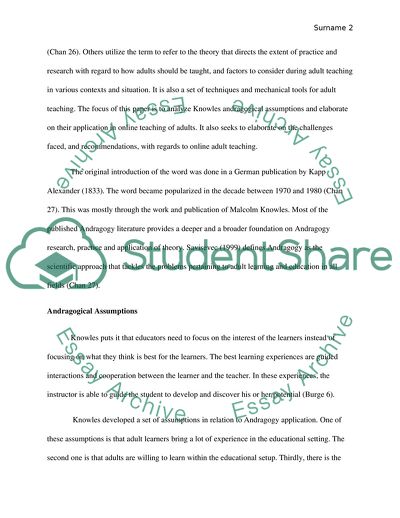Cite this document
(Role of Andragogy and Its Assumptions in Online Adult Teaching Literature review Example | Topics and Well Written Essays - 1750 words, n.d.)
Role of Andragogy and Its Assumptions in Online Adult Teaching Literature review Example | Topics and Well Written Essays - 1750 words. https://studentshare.org/education/1768242-andragogy
Role of Andragogy and Its Assumptions in Online Adult Teaching Literature review Example | Topics and Well Written Essays - 1750 words. https://studentshare.org/education/1768242-andragogy
(Role of Andragogy and Its Assumptions in Online Adult Teaching Literature Review Example | Topics and Well Written Essays - 1750 Words)
Role of Andragogy and Its Assumptions in Online Adult Teaching Literature Review Example | Topics and Well Written Essays - 1750 Words. https://studentshare.org/education/1768242-andragogy.
Role of Andragogy and Its Assumptions in Online Adult Teaching Literature Review Example | Topics and Well Written Essays - 1750 Words. https://studentshare.org/education/1768242-andragogy.
“Role of Andragogy and Its Assumptions in Online Adult Teaching Literature Review Example | Topics and Well Written Essays - 1750 Words”. https://studentshare.org/education/1768242-andragogy.


